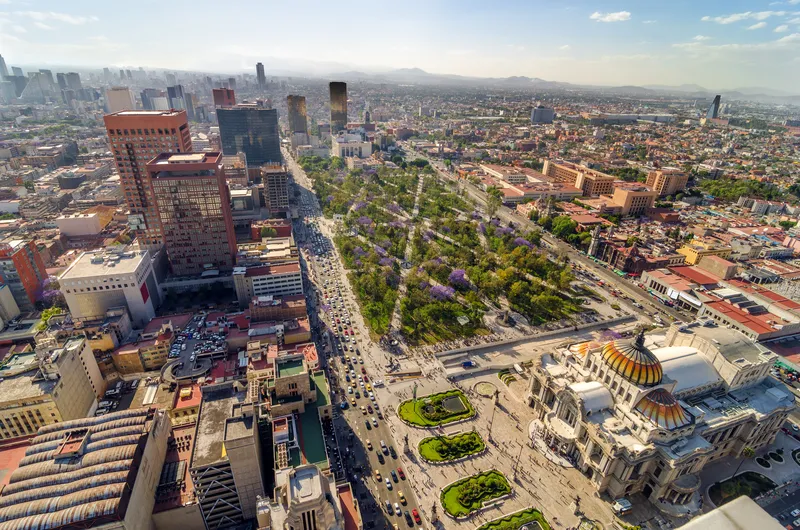The new international airport being built in Mexico City is "probably the most advanced modern airport project worldwide," Dr Bernardo Lisker, international director of The Mitre Corporation, has said.
"This is an enormously important project for Mexico, without which the nation's economy would suffer a bottleneck very soon," said Lisker, who will be discussing the technical vision of the airport at BNamericas' Mexico Infrastructure Summit taking place 18–19 February.
"Building the new airport in the Texcoco area was by far the best alternative," Lisker added. "It will be the first airport in Latin America with simultaneous traffic flow to and from more than one airstrip, and it will be the world's first outside of the US to handle three traffic flows simultaneously."
Costing US$12.5 billion and to be located on a 4,600 hectare site, work on the airport began at the end of December, with developers focusing initially on building access roads and drainage infrastructure, and last month a consortium led by Dutch company Netherlands Airport Consultants (NAICM) won a contract to build runways and platforms and supply navigation equipment, among others.
According to the plans of the communications and transport ministry (SCT), tenders for the construction of the new airport buildings are expected to be published shortly. The first phase of construction includes a new terminal, control tower, 95 gates and three runways with capacity to handle up to 50 million passengers a year.
When complete, the new airport will have six runways and capacity of 120 million passengers a year. The existing Mexico City airport AICM can handle up to 32 million passengers a year but is close to reaching capacity.
New Mexico City airport 'the most advanced worldwide'
The new international airport being built in Mexico City is "probably the most advanced modern airport project worldwide," Dr Bernardo Lisker, international director of The Mitre Corporation, has said.
"This is an enormously important project for Mexico, without which the nation's economy would suffer a bottleneck very soon," said Lisker, who will be discussing the technical vision of the airport at BNamericas' Mexico Infrastructure Summit taking place 18–19 February.
"Building the new airport in the
February 13, 2015
Read time: 2 mins








